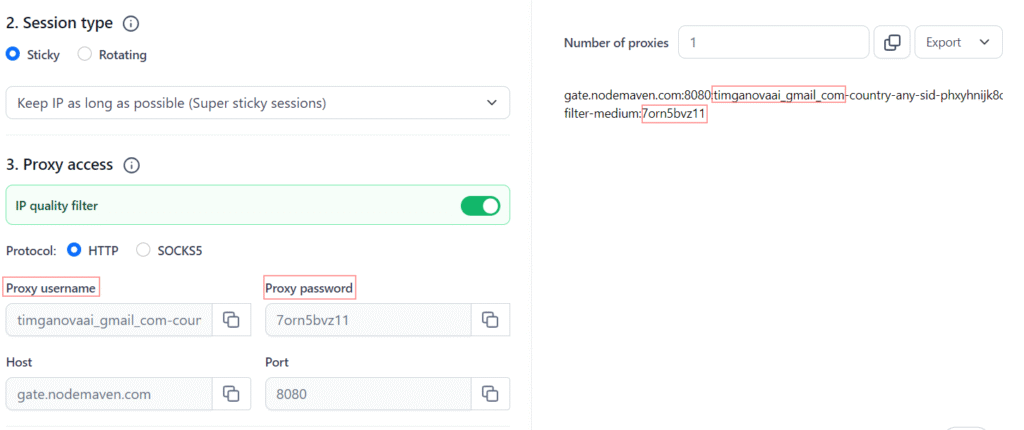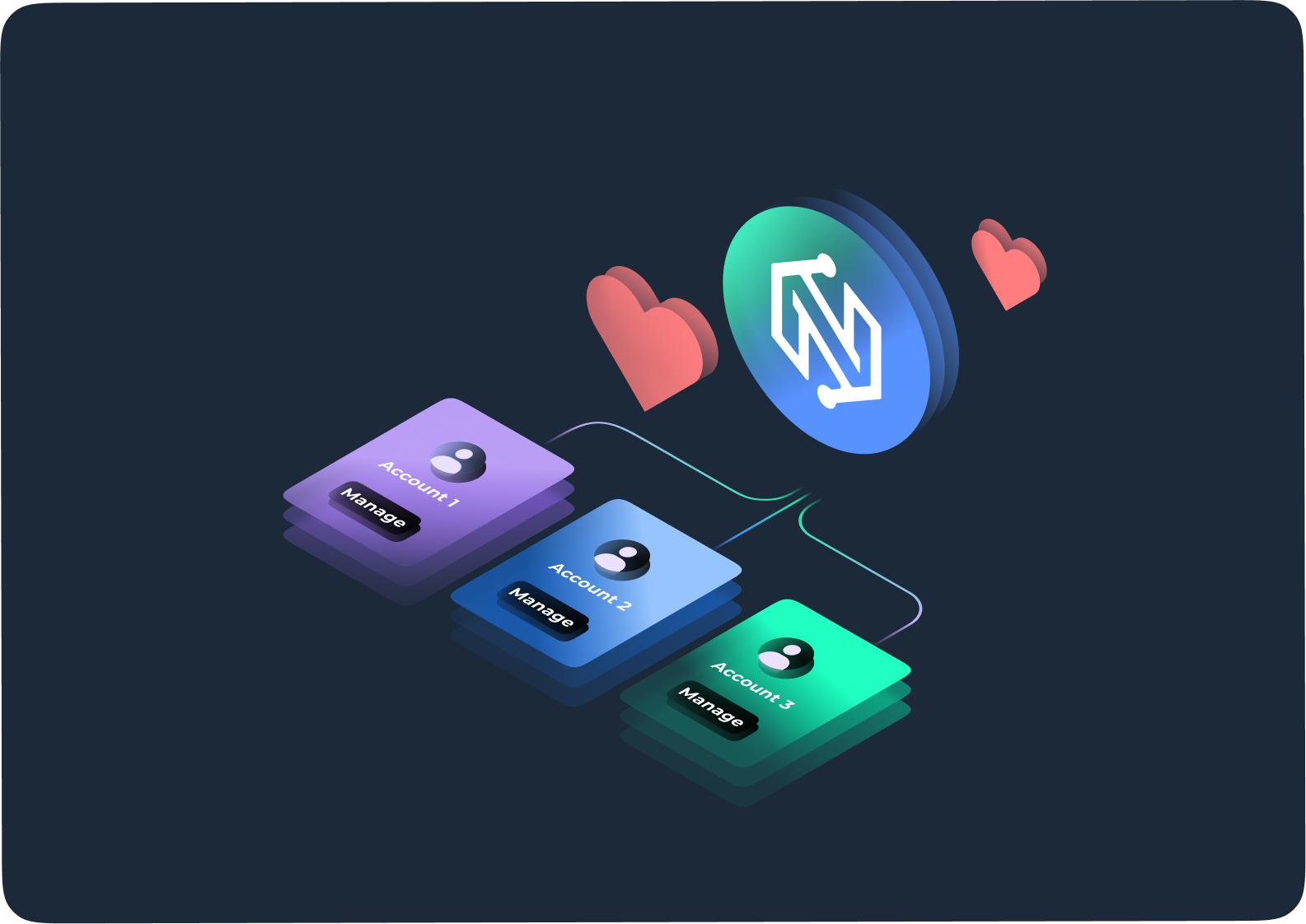Amazon is the world’s largest e-commerce marketplace, hosting millions of sellers and buyers. Naturally, the question comes up often: Can I have multiple Amazon accounts?
The short answer: yes, but only under specific circumstances and with careful management. Whether you’re an individual seller, a large e-commerce operation, or a digital hustler scaling income streams, running multiple Amazon accounts can be beneficial, but it also comes with risks.
This article breaks down the rules, reasons, and methods behind multiple accounts, including how NodeMaven proxies help digital entrepreneurs stay compliant and undetectable.
Why People Want Multiple Amazon Accounts
Before you learn the rules, it’s important to understand why so many sellers and buyers run multiple Amazon accounts. Motivations range from growth opportunities to safety nets against bans.

- E-commerce Scaling: Sellers often want to diversify products, brands, or niches across different accounts to reduce risk and test markets.
- Example: A seller has one account for a fitness brand and another for a pet supply brand. If one product line gets flagged, the other account still runs.
- Risk Management: If one account gets restricted or banned, another Amazon account creates business continuity.
- Tip: Always keep a backup account ready. Many sellers create a secondary account under a separate LLC to avoid losing their entire business to one suspension.
- Product Segmentation: Selling in different categories (e.g., electronics vs. beauty) sometimes works better under separate accounts.
- Example: A seller manages electronics under one account and cosmetics under another to keep branding and reviews separate.
- Regional Expansion: Sellers want accounts optimized for different geographies, currencies, and shipping rules.
- Tip: Sellers targeting both U.S. and EU markets often maintain region-specific accounts to handle VAT, shipping, and pricing differences smoothly.
- Review & Engagement Boosting: Some sellers (controversially) create buyer accounts to leave reviews or test competitor listings.
- Example: Some brands (controversially) create additional buyer accounts to leave verified reviews. While risky, it highlights why proxies are crucial to make accounts look like real customers.
In other words, multiple Amazon accounts are less about hobbyist selling and more about scaling serious operations. Effective multi-account management allows sellers to handle multiple brands efficiently while minimizing operational risks.
Amazon’s Official Rules on Multiple Accounts
Amazon doesn’t outright ban multiple accounts, but it enforces strict conditions. Understanding the rules ensures you don’t get suspended before you even start.
- One Seller Account Rule: By default, Amazon allows only one seller account per individual or business.
- Exceptions: Amazon permits multiple accounts if there is a “legitimate business need.” Examples include:
- Owning brands that require separate storefronts.
- Running businesses in different product categories.
- Operating in different countries with distinct legal entities.
- Approval Required: In most cases, sellers must request approval from Amazon to operate more than one seller account.
👉 Tip: If you do have a legitimate reason (like running multiple brands), submit clear documentation (business license, tax ID, brand registry) when requesting approval.
If you open multiple accounts without approval, Amazon’s detection systems (IP tracking, device fingerprinting, shared financial info) can lead to immediate bans.
The Risks of Running Multiple Amazon Accounts
Managing multiple Amazon accounts without preparation can backfire. Amazon uses advanced detection to link accounts, even when sellers try to hide them.
IP Address Tracking
Amazon tracks the IP address you use to log into Amazon account. If two accounts share the same IP, they can be flagged.
- Example: Logging into two accounts from the same home WiFi alerts Amazon’s system.
- Tip: Assign each account its own dedicated proxy so Amazon thinks each login comes from a separate household.
Device Fingerprinting
Amazon doesn’t just check IPs, it analyzes browser fingerprints like cookies and user-agent strings.
- Example: Even with different IPs, if both accounts are accessed from the same laptop, cookies and browser data can connect them.
- Tip: Use anti-detect browsers like Multilogin or GoLogin alongside proxies.
Payment & Identity Overlaps
Even if IPs are clean, reusing payment or ID details can trigger bans.
- Example: Using the same credit card for two seller accounts almost guarantees a link.
- Tip: Use separate bank accounts, credit cards, and tax IDs. If you don’t have a second business, consider registering a new LLC.
Policy Violations
If one account breaks rules, linked accounts often get hit too.
- Example: If one account gets banned for counterfeit claims, all linked accounts may also go down.
- Tip: Keep product categories and operations isolated between accounts.
For digital hustlers, this is similar to Facebook Ads, PayPal, or eBay multi-accounting: the technical footprint matters just as much as the business rationale.
How NodeMaven Makes Multi-Account Amazon Management Possible
Here’s where NodeMaven enters the picture. If Amazon is aggressively trying to detect duplicate accounts, the only way to operate safely is to mask your digital footprint.
NodeMaven provides the infrastructure digital hustlers need:
- Residential & Mobile Proxies: Amazon sees your accounts as logging in from real devices with trusted IPs, not datacenter servers.
- Sticky Sessions: With 24-hour sticky sessions, each Amazon account can maintain a consistent IP, building trust instead of looking suspicious.
- Account Farming: Sellers can gradually “create Amazon accounts” and warm them up using NodeMaven proxies so they appear like authentic users.
- Geo-Targeting: Want to manage an Amazon UK account and a U.S. account? NodeMaven proxies let you log in from precise regions, down to city and ISP.
- Anti-Detection Integration: NodeMaven proxies plug easily into anti-detect browsers like Multilogin, GoLogin, and Dolphin Anti.
👉 Check out NodeMaven’s dedicated guide on proxies for multi-account management.
Best Practices for Safely Running Multiple Amazon Accounts
If you decide to scale with multiple accounts, here’s how to minimize risk:
1. Separate Identities
Each account should have unique:
- Email address
- Phone number
- Payment method
- Business registration
Never recycle the same information across accounts.
2. Use Proxies Correctly
- Assign a dedicated residential proxy to each account.
- Avoid free or shared proxies – they’re often blacklisted.
- Stick to consistent IPs for login; don’t “hop” across countries unless needed.
3. Pair Proxies with Anti-Detect Browsers
Using only proxies isn’t enough. Anti-detect browsers randomize device fingerprints so each account looks like it’s coming from a different machine.
4. Warm Up Accounts
Don’t go straight into aggressive selling. Start with natural browsing, small purchases, and gradual scaling, just as account farmers do in other industries.
5. Monitor Account Health
Use Amazon’s performance dashboard to watch for red flags like order defect rates, late shipments, or suspicious login alerts.
Managing Buyer Accounts: Balances, Logins, and Closures
Not everyone cares about selling. Many readers ask about Amazon accounts for buyers, and these also come with multiple considerations.
- Amazon Account Balance: Each account has its own gift card or credit balance. Balances don’t transfer between accounts.
- Log Into Amazon Account: If you’re juggling multiple accounts, proxies and unique browsers help you log in safely without triggering verification requests.
- Close Amazon Account: Closing an account is permanent. Once closed, purchase history, balances, and subscriptions vanish.
Managing multiple buyer accounts often overlaps with sellers, both require clean separation to avoid account linking.
How to set up NodeMaven proxies (step-by-step)
- Log in to your NodeMaven Dashboard.
- In the Proxy Setup > Select the proxy type you need:
- Residential / Mobile: recommended for account management, ads, and social media.
For both you can select options:
- Static: recommended for consistent logins and long-term sessions.
- Rotating: recommended for scraping and bulk checks.

- Choose a targeting location or leave it as ‘Random’ for a random proxy location.
Note: Selecting a specific location will update your username in the proxy list accordingly.

- Set the output format:
- Copy the proxy details in the following format: http://username:[email protected]:10000
Final Thoughts: Should You Run Multiple Amazon Accounts?
So, can you have multiple Amazon accounts? Yes, but with rules and risks.
For individuals, running one legitimate seller account is usually enough. But for hustlers, e-commerce brands, and agencies, multiple accounts are a powerful way to scale.
The key is avoiding detection. That’s where NodeMaven becomes a strategic partner. By providing undetectable residential proxies, sticky sessions, and expert onboarding, NodeMaven makes sure your Amazon accounts stay safe, stable, and profitable.
If you’re ready to expand your Amazon business without fear of bans, check out NodeMaven’s Amazon proxies and scale like a pro.


